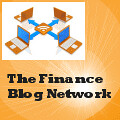Everybody always talks about how to save money. I run into this supposed great advice everywhere: In business, in government, and in individuals.
People need to become accounting-aware. That is to say, how do we maximize our profit? How do we maximize the difference in what we earn (our income) versus what we expend (our expenses)?
If we look at this equation
Income - Expenses = Profit
we can discern three profit-enhancing things we can do:
- Increase our income
- Reduce our expenses
- Do both
- Get a raise
- Take a new job
- Start a new career
But what if you're brown-bagging your lunch, drinking that sludgy office coffee and investing every penny you can, but still not making sufficient progress toward your financial goals? In that case, you need to find a way to make more money.That is to increase your income.
There is one notable item left out of the list above: Earn some income on the side. #2, "Take a new job," isn't directed at an additional job, but rather a different job than the one you have now. You can sell on eBay, blog for money, start a hobby/side business, etc.
Three Ways to Fatten Your Paycheck - Personal Finance - Saving
Governments have to come up with ways to raise income (tax revenues, mostly) rather than just cut and cut. The social problems we face, from Social Security to Welfare to Medicaid, can be completely rendered moot if the government focused on growth in the economy rather than cutting benefits. This is not to suggest that the government should not rid wasteful programs, but there is a better solution than cutting Grandma off Medicaid or Social Security.
Businesses do the same, albeit in a more perverse way, in my opinion. When times are good, they try to maximize revenue (income in a generic sense); conversely, when times are not so good, businesses turn tail and try to "cut the fat." Unfortunately, after the last recession, many businesses cut a lot of fat and there really isn't much more lard to trim.
So, in the midst of the impending economic downturn (i.e., recession), many companies will cut staff, cut ad spend, and reduce outlays for "non essentials." This, in my estimation, is precisely the opposite of what should occur.
Instead, in times like these, smart companies (i.e., the ones that will flourish) will practice the fundamental business action of "buying low." Customer acquisition in a downturn may be difficult, but it's cheap. Now is the time to start the targeted marketing campaigns that will garner customer market share. Follow market grab with excellent customer service and lean, yet effective, operating execution, and you get a winner.
Instead, the "big companies" will cut staff, reduce investment, and slash spending. What a perverse way to do business.





